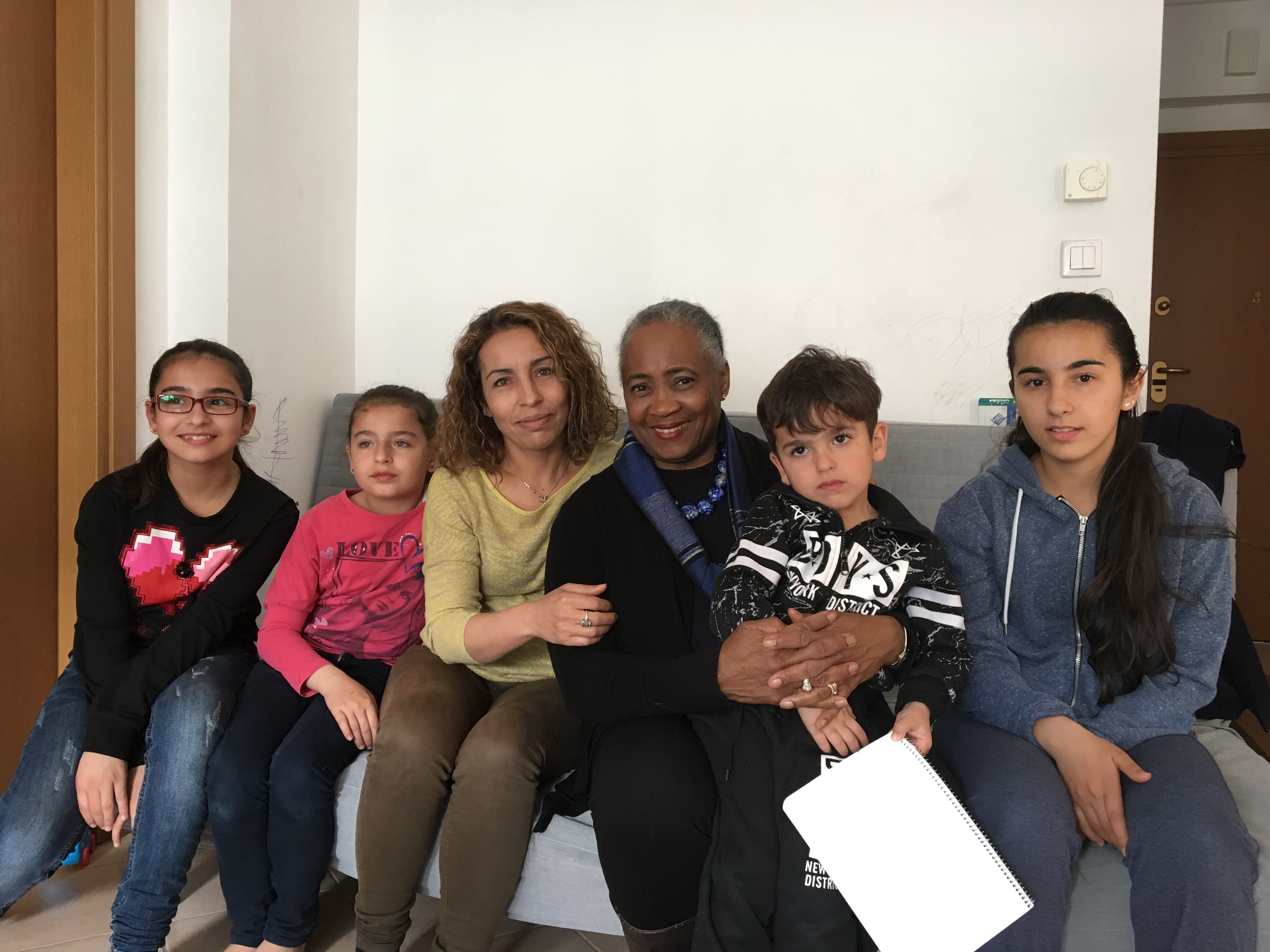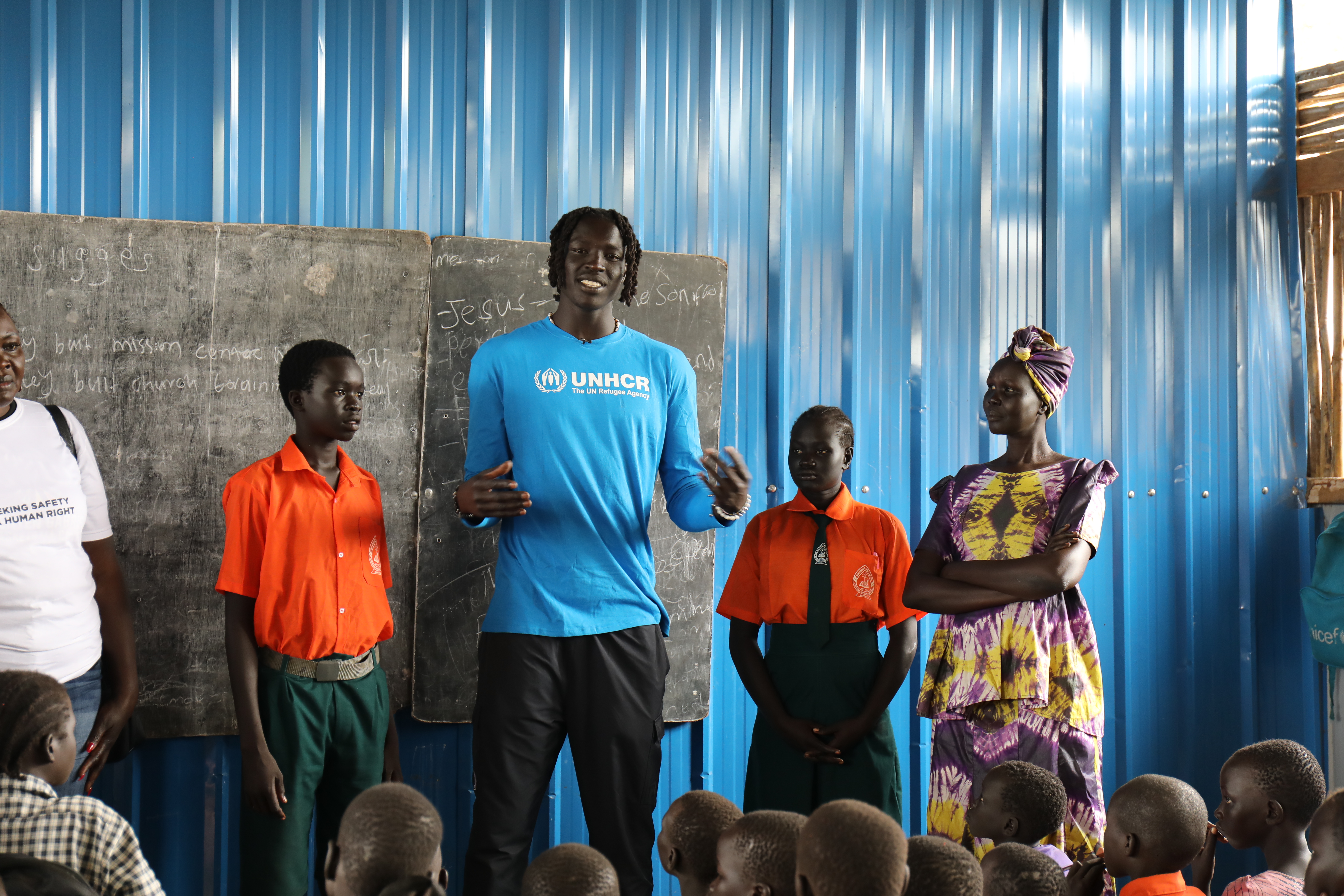UNHCR Goodwill Ambassador Barbara Hendricks sings with refugees in Greece
UNHCR Goodwill Ambassador Barbara Hendricks sings with refugees in Greece

THESSALONIKI, Greece – The acclaimed soprano and humanitarian Barbara Hendricks has visited and sung with refugees in northern Greece and said she was impressed by improvements to their living conditions in the Diavata site and Thessaloniki since last year.
“The opportunity to sing with children and see how the refugee situation has changed in Greece is what brought me back,” said Honorary Lifetime Goodwill UNHCR Ambassador Hendricks, who took part in the 7th Festival of Children’s–Youth Choirs in the Thessaloniki Music Hall last week. She sang with 500 young Greeks and 20 refugee children who live in Diavata.
“Life in a camp should be as temporary as possible."
“I can see that just physically the Diavata site has made enormous progress. When I was here last time [in June 2016] there were mostly tents, which was particularly difficult for families and women,” Hendricks said. “The prefabricated houses [provided by UNHCR, the UN Refugee Agency,] that have replaced the tents are a great improvement,” she added.
At Diavata, she visited Safe Spaces for women and unaccompanied children, and noticed that the minors she had met in Diavata nearly a year ago had left the site. “I hope they are safe,” said Hendricks. “Life in a camp should be as temporary as possible. People who have arrived here have gone through very difficult times; things that we cannot imagine.”
In Thessaloniki, Hendricks visited a community centre for asylum seekers, and talked to people who have applied for asylum in Greece or are waiting for family reunification. They have left camps in northern Greece and since late last year been living in apartments managed under UNHCR’s accommodation programme. Hendricks stressed the need to let families reunite as soon as possible and to ensure that children can get back to school after years with restricted access to education.
"You don’t put your children in a boat when they cannot swim unless you think that it is better than [facing] a war."
Zuzan Hamo has applied for asylum in Greece and her family has made the first steps to start a new life, including learning Greek, she told Hendricks. Zuzan fled Aleppo in Syria with her three daughters and a baby boy in early 2016; after one month they reached the shores of Greece.

None of her children knew how to swim, but there was no choice left. “You don’t put your children in a boat when they cannot swim unless you think that it is better than [facing] a war,” said Hendricks, astonished by the strength and courage of Zuzan and other refugees.
“An important lesson I have learned is that in order to sing together in harmony you have to listen to one another; you have to be open to other people. This is what we need in Europe – solidarity,” the singer said. “Refugees are victims of this war; they did not decide to start a war. They are our brothers and sisters. Do for them what you would want people to do for you if you were in the same situation.”
UNHCR has been supporting and working with the Greek Government throughout the refugee crisis to find the best solutions, and restore normalcy to refugees’ lives. Together with its partners, and thanks mostly to EU funding, UNHCR manages the accommodation scheme with over 18,000 places in a combination of hotels, private apartments, host families and collective centres/buildings. UNHCR has helped to provide accommodation for close to 30,000 refugees since November 2015.








